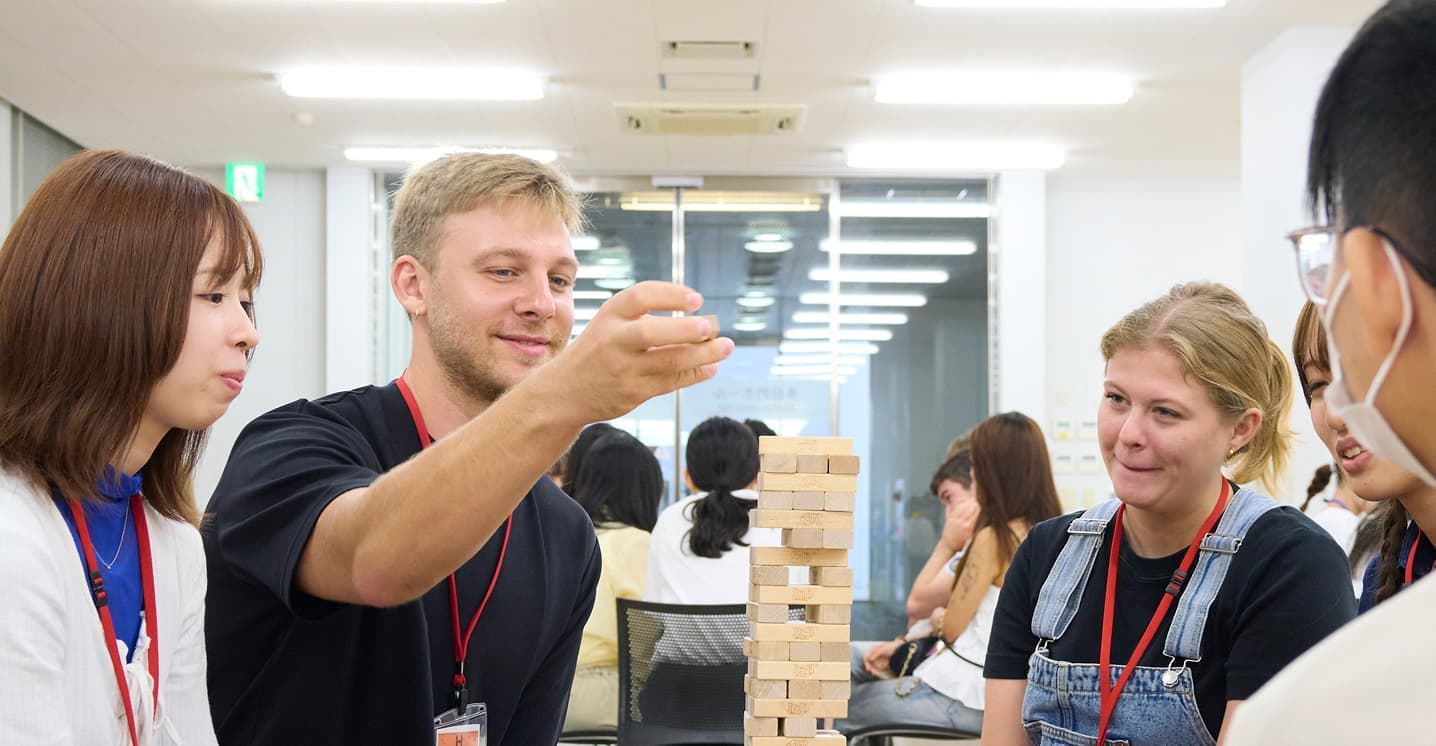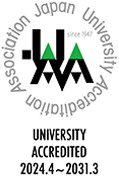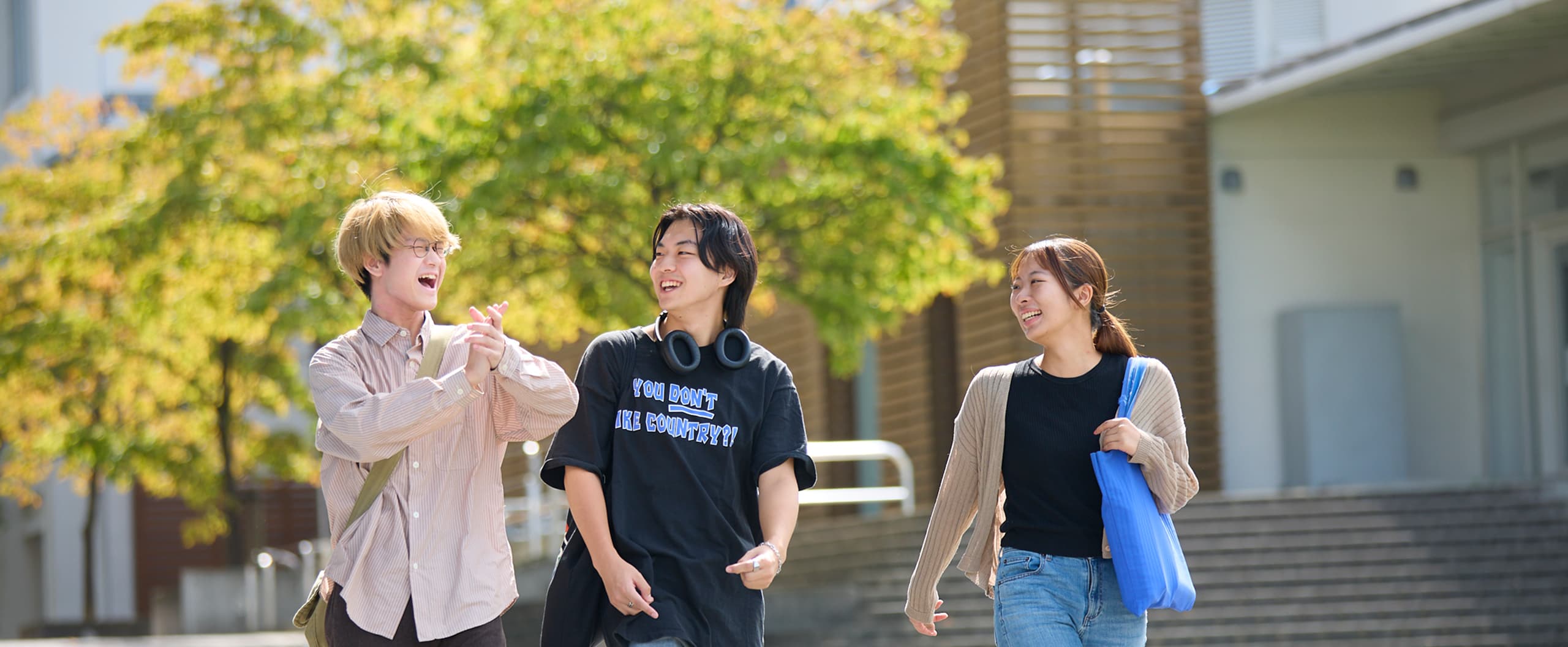
Resident Assistant Testimonial
“Delivering “Independence and Peace of Mind” to International Students — An RA's Perspective on Real-World Support.”

Faculty of Global Culture and Communication, Department of Global Culture and Communication, Major of Hospitality and Tourism Management
2nd year・Resident Assistant (RA)
Mitsuki Okumoto
Please introduce yourself and tell us what motivated you to become an RA.
My name is Mitsuki Okumoto, a second-year student in the Department of Global Culture and Communication within the Faculty of Global Culture and CommunicationWhat motivated me to become an RA was the belief that I could improve my English skills while staying in Japan. When I was deciding on a university, I was looking for a place where I could both study tourism and develop my English. On the university website, I learned that ASU had a dormitory called iHouse where international students live, and that’s when I began to think about becoming an RA. I was determined to become an RA, so I attended multiple information sessions. During the first six months after enrolling, I didn’t sign a lease and instead commuted from my family home, which is two and a half hours away from campus.
What is something you keep in mind when interacting with or supporting international students?
My focus is on supporting international students so that they can live independently. At first, I thought I had to help with everything — that doing everything for them was a good thing. But I came to realize that my role is to support them in doing things on their own. For example, when someone asked, “Do you think it’s a good idea to go to [some place]?” I used to just nod and say “Sounds good!” But I came to understand that what they were looking for wasn’t agreement, but my actual opinion — something like “I think [place] would be a better choice.” I also used to think that RAs should always be kind and accommodating, but that mindset changed significantly after I started the role. For instance, when a student once said they wanted to go to a particular restaurant, I made the reservation for them. After that, they began relying on me to make reservations every time. That experience taught me that “doing everything for them” isn’t the right approach. Instead, helping them gain the skills to manage things on their own is what being an RA is really about.
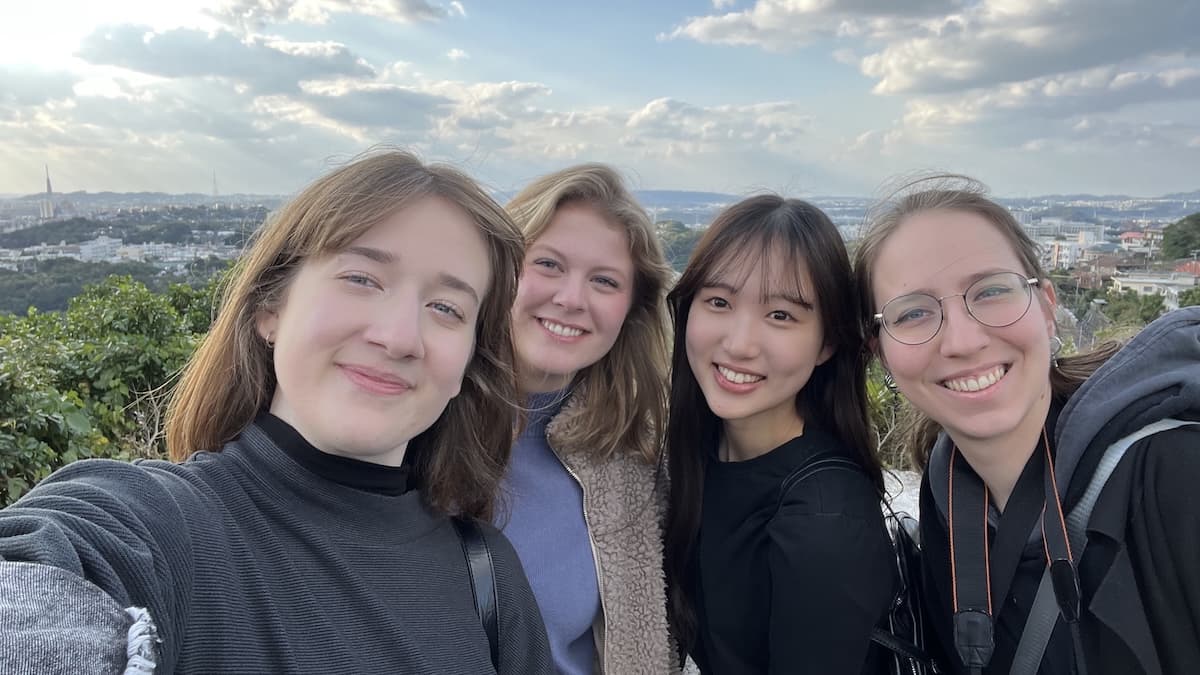
What kind of support do you provide for international students as an RA living at iHouse?
I help them get settled into life at iHouse — teaching them how to manage daily tasks, going shopping with them to buy necessities, and introducing them to the local area so they can live independently.
I also teach them how to buy train tickets and explain local customs and etiquette, like keeping quiet on buses. Being an RA is different from simply engaging in international exchange — it’s about offering practical support to help international students adjust to life in Japan. I see my role as creating an environment where they can feel secure and at ease.
What do you hope to provide international students through exchange events?
I want to help them create fun memories that make them feel coming to Japan was worthwhile.
We regularly hold events at iHouse, such as cherry blossom viewing in spring, Halloween in autumn, and Christmas in winter.
I also want to ensure international students have opportunities to interact with Japanese students outside the RA team. To that end, I plan campus-wide exchange events where they can meet and connect with other students.
In the past, we’ve held sports events that included basketball, scavenger hunts, and traditional Japanese games like “Daruma-san ga koronda.” We’ve also organized cultural exchange parties where people bring and share dishes from their home countries. These events offer opportunities for everyone to enjoy themselves and make new connections.
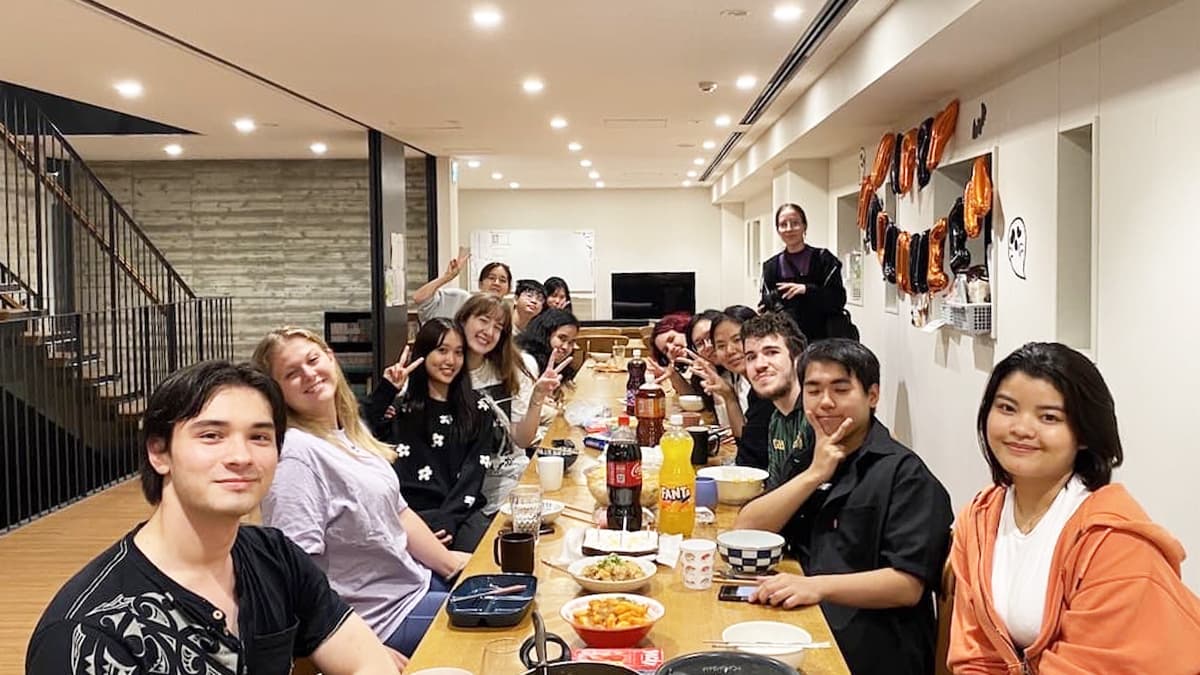
Could you share a particularly memorable support experience?
It was when a student told me, “Thank you! I couldn’t have done it without you, Okumoto-san.”
Some international students struggle to keep up in class, so I try to check in by asking things like, “Are you managing okay?” or “Is there anything you’re having trouble with?” When needed, I suggest, “Let’s try going over it together.” Also, if someone seems down, I might invite them out for a change of pace, like grabbing a meal together.
When students return to their home countries and tell me that having an RA made their time in Japan truly enjoyable, it reminds me why I do this — and motivates me to keep giving my best.
What do you consider most important in your role as an RA?
I believe an RA should be the person closest to international students: a friend, a guide in dorm life, and someone who can speak up when needed. Even for small things, like when dishes are left out, I think it’s important to gently remind, “Please take care of your dishes.” At iHouse, it’s essential to have someone who can notice and address these things in the moment. Above all, I value creating a space where everyone can feel comfortable while respecting each other’s cultures.
Do you have a message for international students considering enrolling at ASU?
iHouse is a truly special place where you’ll meet people from a wide range of cultures and backgrounds. One thing international students often say is, “iHouse is not just a dormitory. iHouse is our home.”
It’s a community where we cherish one another’s traditions and values, and treat each other like family.
I believe you won’t regret coming here. With iHouse, you can feel at ease as you begin your life in Japan.
This site uses a machine translation service.


